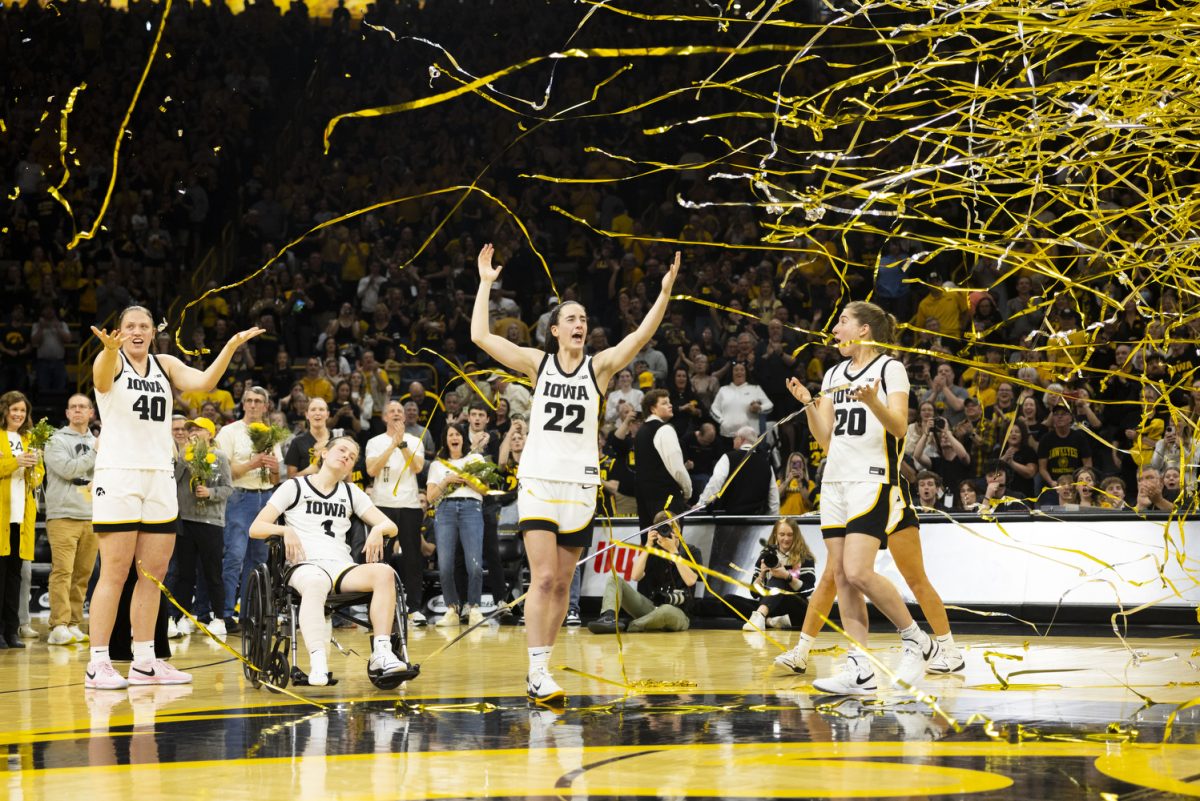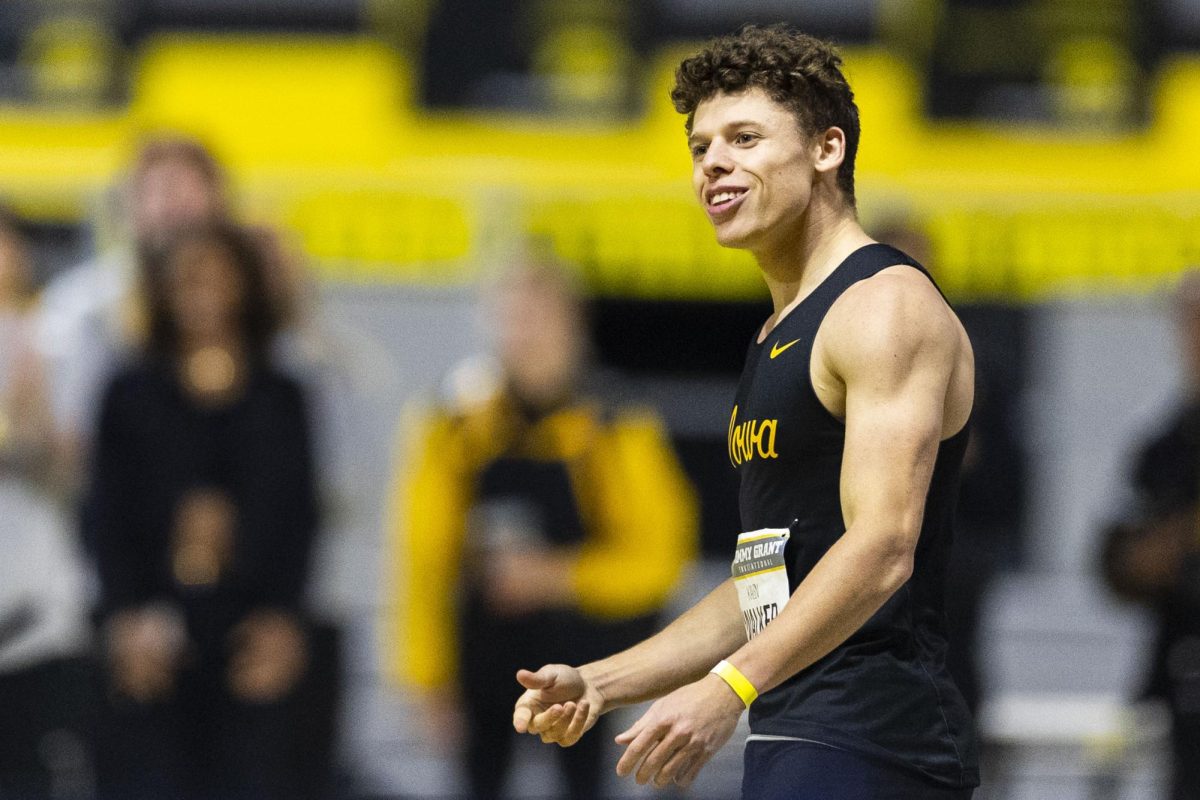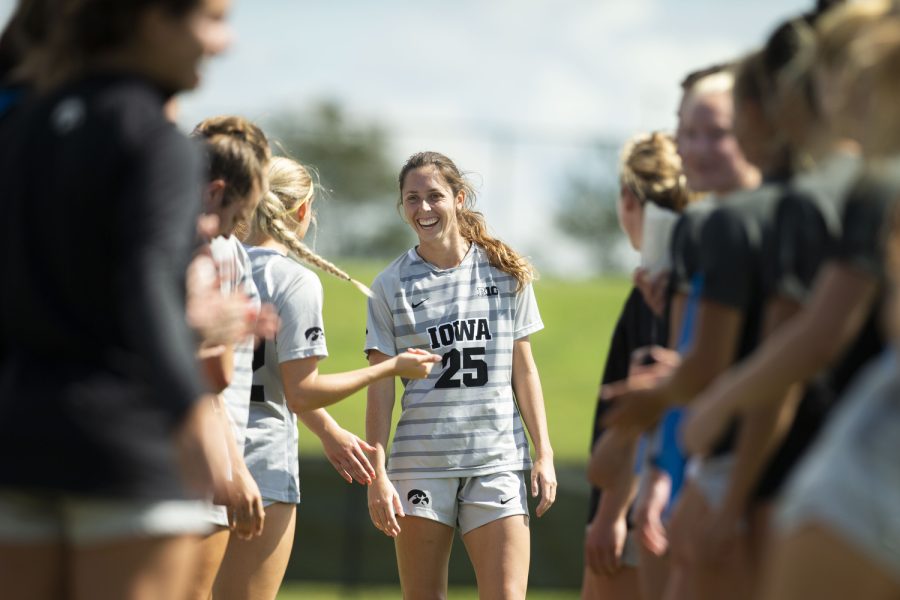Running game
Maybe it was just the cataclysmic weather at Kinnick Stadium on Sept. 3.
Maybe it was just first-game jitters.
Or, maybe, the Iowa running game isn’t as rock-solid as we thought it might be.
Two fumbles from Marcus Coker, another drop by De’Andre Johnson, and a potentially season-ending ankle injury to Mika’il McCall cast some doubt on the strength of the Hawkeye ground attack.
Coker is still one of the best backs in the Big Ten, and his two fumbles against Tennessee Tech could be explained by the monsoons that engulfed Iowa City. If he keeps coughing the ball up, though, both the 230-pound sophomore and the team as a whole could be faced with a huge problem. His performance otherwise was not stellar; Coker ran for just 42 yards on 11 carries, and no rush gained more than 8 yards.
McCall’s performance was a huge bright spot for the Hawkeyes — the freshman ran for 61 yards on nine carries in the first half. Unfortunately, Iowa’s apparent trend of suffering misfortunes in the backfield continued when the freshman suffered a broken ankle in the second quarter. The injury to McCall — who would likely have been one of Coker’s primary backups — deals a blow to the running-back depth.
The pair of backs who received the bulk of the carries after McCall’s injury had next to no prior game experience: Redshirt freshman Johnson and little-used Jason White had a combined career total of one carry for 14 yards prior to Sept. 3.
In a league as tough as the Big Ten, depth at running back is a must.
The Hawkeyes rushed for 148 yards, which was third-worst in the conference, and hopes of contending for the Legends Division crown will rise and fall with the performance of the running backs.
— by Ryan Murphy
Passing game
Other than the downpour and lightning strikes during Iowa’s season-opener against Tennessee Tech, Hawkeye football fans will remember Marcus Coker’s two fumbles in the first quarter. Granted, Coker shouldn’t lose control of two balls, but what’s more concerning is the sorry shape of Iowa’s passing game.
Instead of one running back having a slow start to the season, four different Iowa receivers dropped six passes — Matthew Meyers, Keenan Davis, Brad Herman, and Zach Derby.
Problems with rushing are easier to pinpoint and resolve when they’re being committed by one player. But Iowa’s aerial attack seemed to fail no matter who was on the receiving end.
Overall, the Hawkeyes grabbed only 13-of-21 passes from newly unveiled starting quarterback James Vandenberg. The scary thing is, the problem doesn’t seem to come from Vandenberg at all.
When one of his receivers — mainly Marvin McNutt — could actually hold onto the football, Vandenberg was able to create impressive plays, including McNutt’s 88-yard touchdown on a Vandenberg pass.
But how many other fantastic plays were stopped because the receivers couldn’t handle a reception?
When Vandenberg passed spot-on to tight end Derby in the second quarter, the junior dropped the third-and-goal ball, and Iowa had to settle for a field goal. That took 4 points off the board for Iowa — and in Big Ten games later this season, 4 points can make or break a game.
We can’t be certain how many of Iowa’s six dropped balls would have turned into touchdowns, but missing six passes simply means Iowa missed six opportunities to do better.
— by Molly Irene Olmstead






